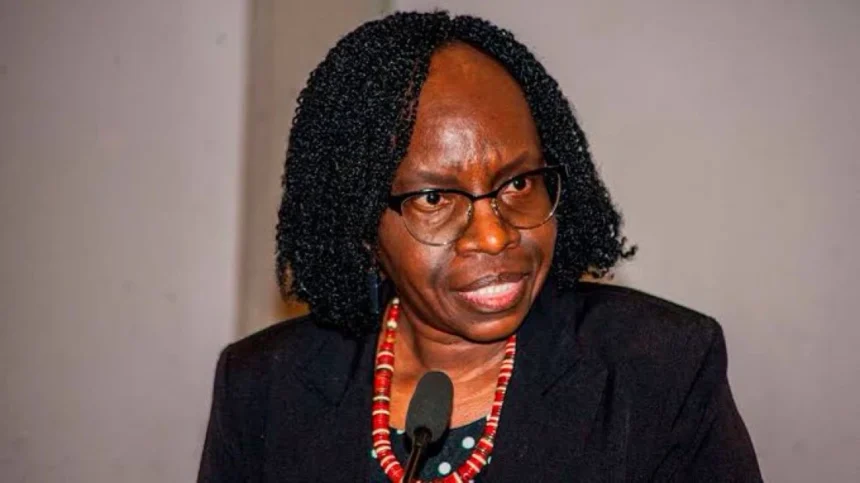Auditor-General Nancy Gathungu has flagged accountability and transparency gaps within the government’s eCitizen digital payment platform, pointing to potential misuse of billions of shillings and raising alarm over service delivery failures in key government agencies.
In a March 2025 audit report for the platform’s operations in the financial year ending June 30, 2024, the Auditor-General points out over Ksh.9.6 billion in questionable transactions and poor oversight involving financial service providers and government ministries, departments, and agencies (MDAs).
According to the report, the National Treasury had not signed Service Level Agreements (SLAs) with financial service providers responsible for collecting and settling payments through the eCitizen portal.
In the absence of these binding agreements, a staggering Ksh.7.05 billion held in collection and settlement accounts remains in limbo, the audit says.
Gathungu warns that without SLAs, service providers might be utilizing the public funds for their benefit, undermining service delivery across MDAs that rely on the timely remittance of collected revenue.
“This lack of formal agreements compromises accountability and poses a risk to effective public service delivery,” the AG notes.
Further, she says the audit also uncovered Ksh.2.57 billion in receipts that could not be linked to any invoices in the Pesaflow system, which facilitates digital government payments.
The unaccounted receipts were attributed to partial, duplicate, and erroneous payments, which auditors say expose the system to fraud, misappropriation, and revenue leakage.
“The lack of revenue traceability raises serious accountability concerns,” the report says, warning that unremitted funds ultimately compromise service delivery in government agencies.
Scrutiny of the eCitizen reporting module additionally showed inconsistencies in how collections are reported and settled.
For instance, while the Government Digital Payments (GDP) Unit reported that Ksh. 2.24 billion was due for settlement to the Tourism Fund, Gathungu says a review of weekly reports used to settle actual collections showed only Ksh.1.72 billion, leaving a discrepancy of Ksh.515 million.
“This discrepancy highlights inadequacies in the eCitizen reporting module, raising concerns about the reliability and accuracy of the settlement reports generated by the system… [It] implies that not all revenue collected is remitted to MDAs and Counties which negatively affect service delivery,” Gathungu stated.
The AG raises concerns that the systemic weaknesses in the digital payment platform are likely to affect public services.
With funds either delayed, misallocated, or unaccounted for, MDAs and county governments may find themselves unable to deliver essential services to citizens, Gathungu says.
Behind eCitizen is a three-member consortium called ECS (Electronic Citizen Services) LLC, comprising Webmasters Kenya Limited, the company providing eCitizen customer care and related services; Pesaflow, which handles cash collection; and Olive Tree Media in charge of bulk messaging and security support for notification services.
Webmasters developed eCitizen in 2014, and then-President Uhuru Kenyatta’s government adopted it as part of its push to digitise county and national government services.
It has since expanded to be the main gateway for over 22,000 services by agencies like the National Transport and Safety Authority, Kenya Revenue Authority, and the National Registration Bureau.
Gathungu has previously flagged eCitizen’s revenue accountability statement for the year ended June 2023, questioning the accuracy of revenue receipts amounting to Ksh.15.5 billion, which she said could not be confirmed.
The AG’s office flagged discrepancies in the actual balances recorded by several ministries, departments, and agencies in the year ending June 2024, and the amounts shown by the digital receipts generated by eCitizen.
But ECS has defended its accountability, saying all the transactions processed through eCitizen are verified before the company invoices the government monthly for maintaining the platform.



